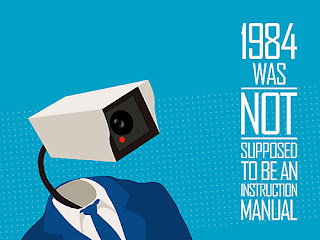Once again,
Stegner does not
disappoint. I was skeptical about how much I would like this book at first. Following popularity and general acclaim as a measure, I had already read
Stegner's best two books,
Angle of Repose and
Crossing to Safety, both of which I highly recommend to anyone. After those two books, I read
The Spectator Bird, which was very good, but not as good--in my opinion--as the first two. So, when I picked up
The Big Rock Candy Mountain, I wondered where I would place it among
Stegner's works.
Usually, when I pick up a Stegner novel, it takes a good hundred pages or so of reading before I really get "into" the book--with, perhaps, the exception of Crossing to Safety. I think the reason for this in my case is that Stegner's novels rarely rely on a "page-turner plot" to pull us in and drive the story and meaning of the book. Rather, Stegner's characters become real so that every time I open the book, I feel like I'm coming back to old friends who I care about and want to experience life with.
In the end, that's exactly what Stegner writes--experiences into other people's lives.

He writes people who live ordinary lives that somehow become extraordinary and profound as we reflect on them. I found this novel to be comparable to
Angle of Repose in a lot of ways. It focuses on a small family being swept around the American west by the changing fortunes and endeavors of the husband--though admittedly, the husbands are very different in the two books. The focus of the novel seemed different to me, however, and
Angle of Repose seems like an evolution from
The Big Rock Candy Mountain. This novel focuses on the marriage of Bo and Elsa Mason, but more than that it focuses on parenthood, as the perspectives shift to the children as they grow and understand their parents. In
Angle of Repose, Stegner focused more on the marriage in the story, but he also went to another level of depth, writing the story from the perspective of the modern historian, Lyman Ward, whose wife had left him. In that book, Stegner added an extra level of depth that didn't exist in its predecessor. Lyman Ward gives us a catalyst of application and relatability as we see the lives of his grandparents through his eyes.
Despite my rambling about Angle of Repose, I heartily recommend The Big Rock Candy Mountain. I believe much understanding and applicability to our lives can be gleaned from its pages.
 He writes people who live ordinary lives that somehow become extraordinary and profound as we reflect on them. I found this novel to be comparable to Angle of Repose in a lot of ways. It focuses on a small family being swept around the American west by the changing fortunes and endeavors of the husband--though admittedly, the husbands are very different in the two books. The focus of the novel seemed different to me, however, and Angle of Repose seems like an evolution from The Big Rock Candy Mountain. This novel focuses on the marriage of Bo and Elsa Mason, but more than that it focuses on parenthood, as the perspectives shift to the children as they grow and understand their parents. In Angle of Repose, Stegner focused more on the marriage in the story, but he also went to another level of depth, writing the story from the perspective of the modern historian, Lyman Ward, whose wife had left him. In that book, Stegner added an extra level of depth that didn't exist in its predecessor. Lyman Ward gives us a catalyst of application and relatability as we see the lives of his grandparents through his eyes.
He writes people who live ordinary lives that somehow become extraordinary and profound as we reflect on them. I found this novel to be comparable to Angle of Repose in a lot of ways. It focuses on a small family being swept around the American west by the changing fortunes and endeavors of the husband--though admittedly, the husbands are very different in the two books. The focus of the novel seemed different to me, however, and Angle of Repose seems like an evolution from The Big Rock Candy Mountain. This novel focuses on the marriage of Bo and Elsa Mason, but more than that it focuses on parenthood, as the perspectives shift to the children as they grow and understand their parents. In Angle of Repose, Stegner focused more on the marriage in the story, but he also went to another level of depth, writing the story from the perspective of the modern historian, Lyman Ward, whose wife had left him. In that book, Stegner added an extra level of depth that didn't exist in its predecessor. Lyman Ward gives us a catalyst of application and relatability as we see the lives of his grandparents through his eyes.
